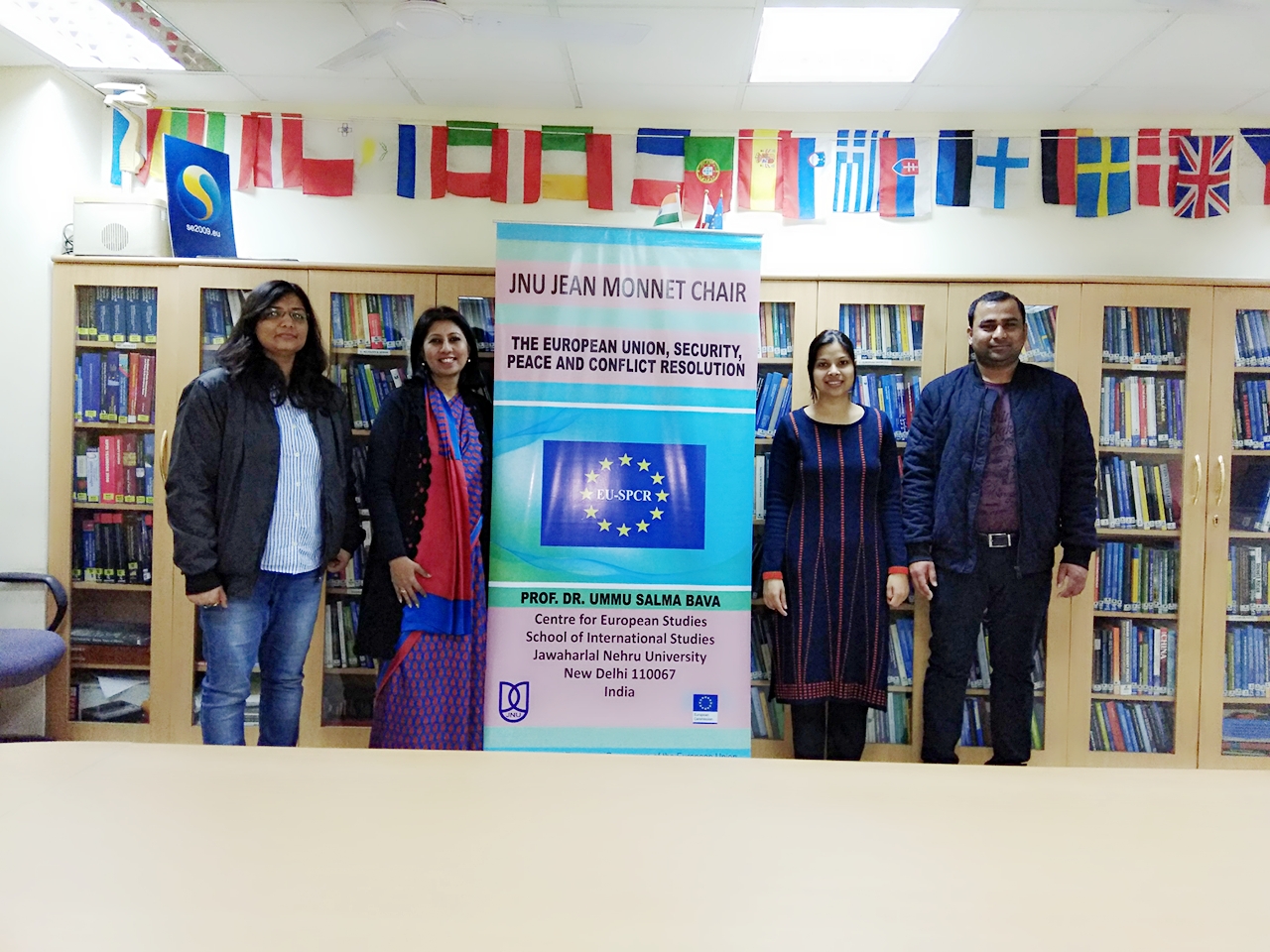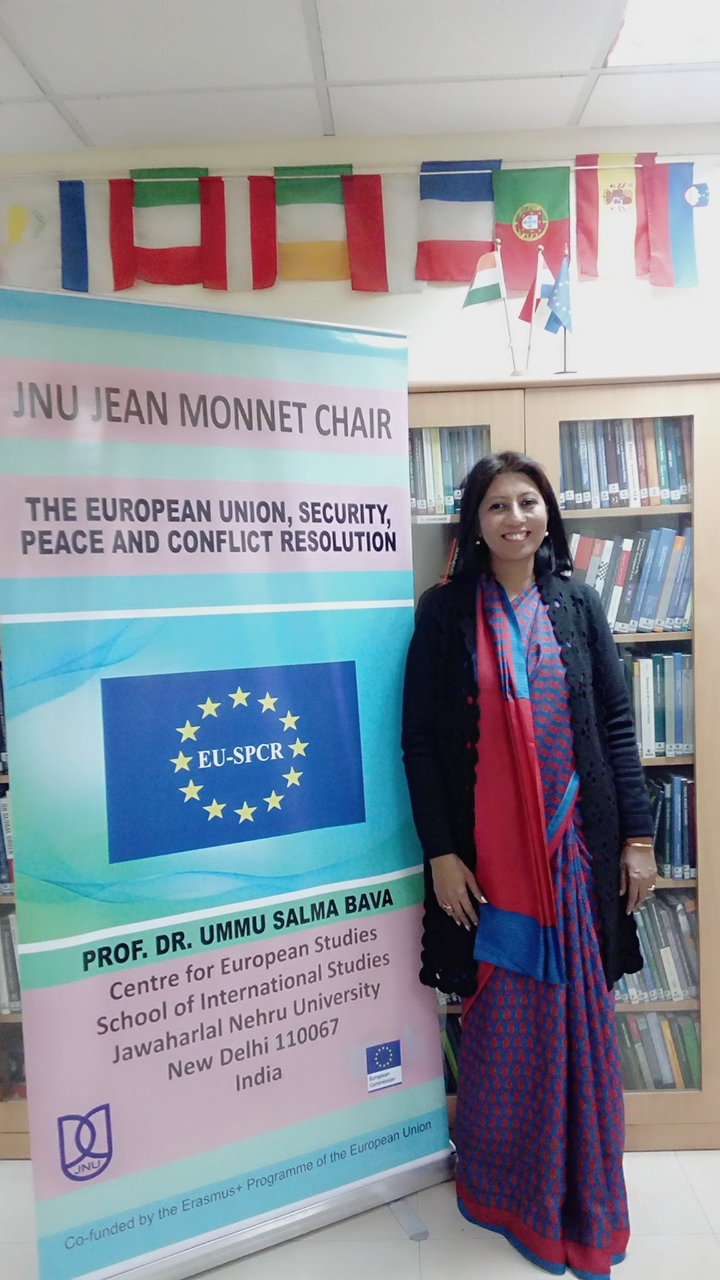
Teaching
Research

Next Gen
JMC EU-SPCR
Teaching
Research
Next Gen
Capacity building
Networks
Jean Monnet Chair – The European Union, Security, Peace and Conflict Resolution (JM CHAIR - EU-SPCR)
Conflict has emerged as a critical factor disrupting domestic and international affairs. The Jean Monnet Chair - EU-SPCR will focus on teaching and research about how the European Union (EU) integrates security with peace and conflict resolution, which has not been focussed by other Jean Monnet activities in India. This is totally unknown to academics, the policy world and in think tanks and it is one of the most critical aspects that need to be highlighted today to create a new understanding about the EU in India and take lessons and create a strong sustained research base in the study and training about the EU.
Through teaching, research, writing, conference and workshop it will build a new knowledge base that informs a next generation of scholars in India and policy makers and practitioners, on the EU’s experience with conflict resolution and peace building while addressing security. By supporting comparative research, it will allow for new insights to be gained about the EU and how it addresses conflict. This can open up pathways for collaborative research at national and international level. The dedicated website will be a nodal contact point and offer visibility to EU studies and to this JM Chair – EU-SPCR at JNU. In addition, interface between academia and policy makers through lectures, meetings, conferences will seek to create a network of actions made visible through multiple activities.

Capacity building

Networks